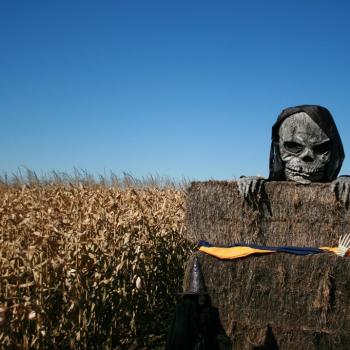By Fr. Mike Boutin
 Next Sunday, March 28th, is Palm Sunday of the Lord's Passion. The liturgical color is red. For a good website to learn more about Palm Sunday, click here.
Next Sunday, March 28th, is Palm Sunday of the Lord's Passion. The liturgical color is red. For a good website to learn more about Palm Sunday, click here.
Check out Franciscan Radio for its homily on Passion Sunday.
The memorial of Christ's entrance into Jerusalem is celebrated at every Mass. There are three forms of the opening procession on Palm Sunday: 1) the procession which begins elsewhere than the worship space and includes a procession with palms by the assembly who gathers 2) the solemn entrance which takes place within the main worship space and includes a procession within the space of at least a small gathering of the faithful and 3) the simple entrance which precludes the procession, and instead simply begins as usual. For pastoral reasons, it seems that in most parishes, an outdoor procession should be scheduled at the principal Mass while the solemn entrance should be celebrated, with its required Gospel at all other Masses. No parish Mass should use the simple entrance, unless the guiding liturgical principle is to get them out quickly....
Prayers for the elect and the candidates should be included in all parish Masses until the Easter Vigil. Consider replacing the sacred oils with a Book of the Elect that would include pictures of the elect, a prayer for them, and perhaps a brief biography of each of the candidates that could also be posted on the web and included in the bulletin.
Click here for next Sunday's readings.
Here are a few good sites for exegesis (an explanation of what the biblical texts are trying to say):
General Intercessions (Prayers of the Faithful):
The general intercessions at Mass should be written in the community that will pray them. Don't rely on canned prayers. Your community deserves someone who will pray about what this particular community's needs are this week, and then help them to articulate their needs and the needs of the larger community.
General intercessions should be just that: general enough that everyone can pray them. Prayers for the world, for the local community, for the sick, for peace, and for the dead should be numbered among the prayers you articulate. Adding a list of the local sick and deceased is a good way to make these prayers the prayers of this local community. Here are some general principles and a good example of general intercessions for next Sunday.
When I am preparing to preach, my process includes a number of pieces: 1) prayer with the scriptures 2) a weekly Bible study with parishioners on Tuesday morning that forces me to interact with the texts before Friday! 2) looking at a few different "homily helps" not in order to use a canned homily (honestly, I've never done that), but instead, sometimes to find a different angle, or a starter story, or some particularly useful insight.
The sources I use include:
- The Preachers' Exchange is a great website for Catholic preachers, by Jude Siciliano, OP. Well worth adding to your Favorites list.
- Celebration, published by NCR, is my favorite homily preparation type service, though it describes itself as a "comprehensive worship resource." It is an ecumenical and multi-cultural resource, has very fine scriptural scholarship and homily starters, interesting and useful articles and features, a daily Mass supplement. Overall, a lot of liturgical and preaching bang for your hard-earned buck!
- Prepare the Word is an online resource published by True Quest, whose strongest asset is Alice Camille, one of its writers, but whose weakest link is customer service and subscriptions.
- Connections, published by Media Works and edited by Jay Cormier, is a great resource: a couple of short stories, fables, news events that relate (some more, some not quite so much!), but which provide only a springboard for your own preaching...
- This Sunday's Scripture, is published by Word Press and is one of the best available resources. Good exegesis and pastoral application, and some useful homily starters. This resource is grounded in a prayerful weeklong approach to the Sunday scriptures and preaching.




